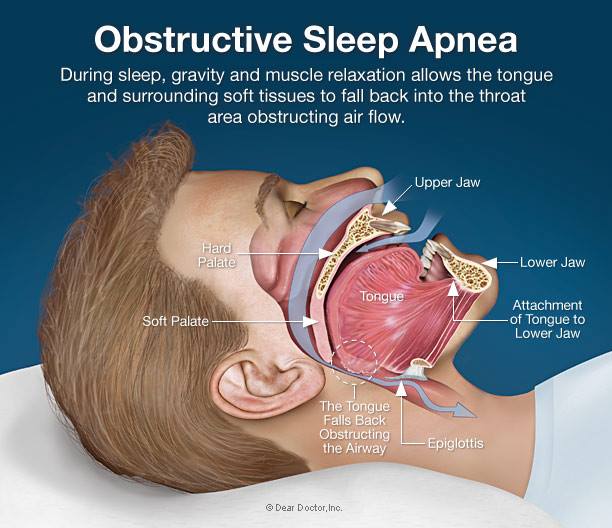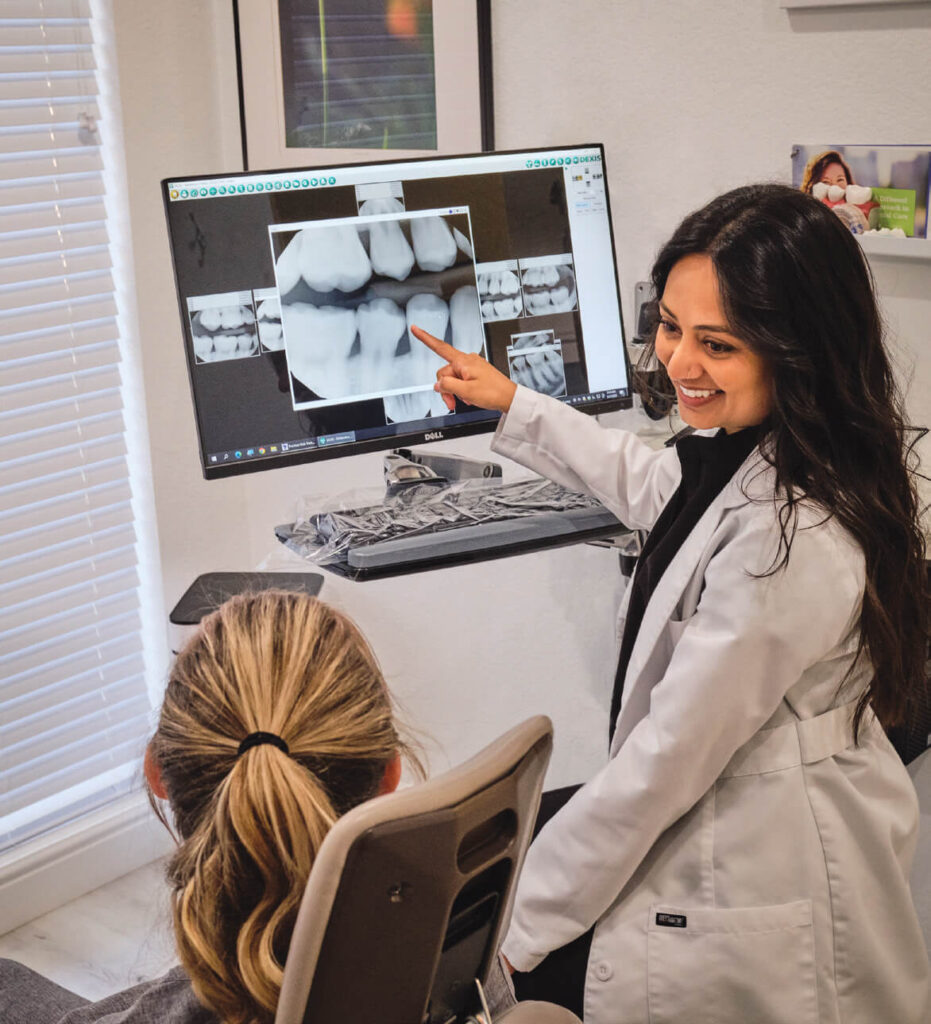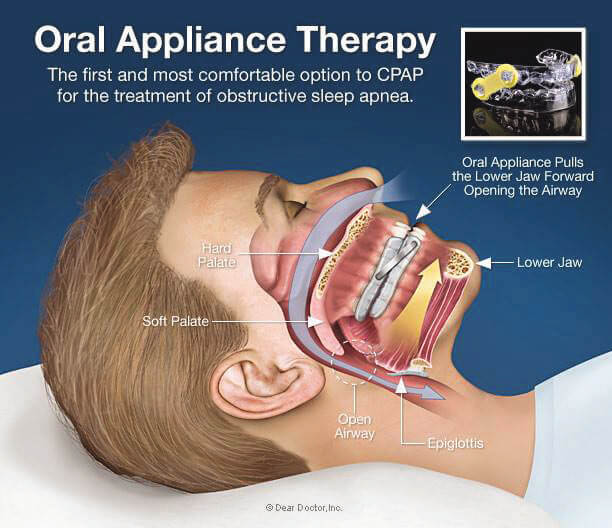
Do you have trouble sleeping? If so, you’re not alone. An estimated 22 million Americans suffer from a lack of sleep—and even exhaustion—caused by sleep apnea. Chronic snoring problems and interrupted sleep aren’t just an inconvenience.
Untreated sleep apnea can lead to more serious health risks. Sleep apnea is a common but serious sleep disorder that causes interruptions in breathing during sleep.
When we sleep, the combination of gravity and our muscles relaxing allows the tongue and surrounding soft tissues to fall back into the throat obstructing airflow in the airway. This causes pauses in breathing. These pauses are called apneas.
The word apnea means without breath. A person may have partial pauses in breathing (hypopneas), or complete pauses (apneas) that last 10 seconds or longer during sleep. These pauses in breathing are often accompanied by a drop in blood oxygen level. The struggle to breathe and the drop in oxygen saturation will eventually cause the person to momentarily arouse, opening the throat allowing them to breathe again. These arousals are brief and typically not remembered the next morning. Longer apneas may cause the sufferer to fully awaken to a frightening feeling of choking. This pattern can occur hundreds of times per night interrupting the body’s normal sleep cycle and preventing the deep, restorative sleep our bodies need.
Some of the short-term consequences of sleep apnea are excessive daytime sleepiness, lack of energy, poor concentration, irritability, slowed reflexes and an increased risk of accident.
If a spouse or partner has complained about your snoring, it can cause issues in your relationship. It’s important to recognize that loud snoring is a sign of sleep apnea, which also has significant consequences for your health, in addition to keeping your sleeping partner awake at night.
While CPAP is very effective in treating sleep apnea, many people cannot tolerate the discomfort of the mask and the inconvenience and noise of the machine. Therefore a high percentage of users have difficulty or will not wear them. An oral appliance is a popular alternative to the CPAP. This device is small, portable, fits more comfortably and can provide similar treatment benefits.
These devices are custom fitted by dentists with special expertise and training in treating sleep apnea. They fit in the mouth, similar to a retainer or mouth guard. They open your airway by moving your lower jaw and tongue forward while you sleep. They are small, comfortable and effective.
Sleep apnea often responds to oral appliance therapy, which prevents the conditions that cause airway blockage by holding the tongue or jaw in a forward position, keeping the soft tissues at the back of the throat out of the vicinity of the airway. The appliance feels similar to a mouthguard and is quite comfortable, which is why many patients prefer this treatment method over a Continuous Positive Airway Pressure (CPAP) mask that forces air into the airway to keep it open.

